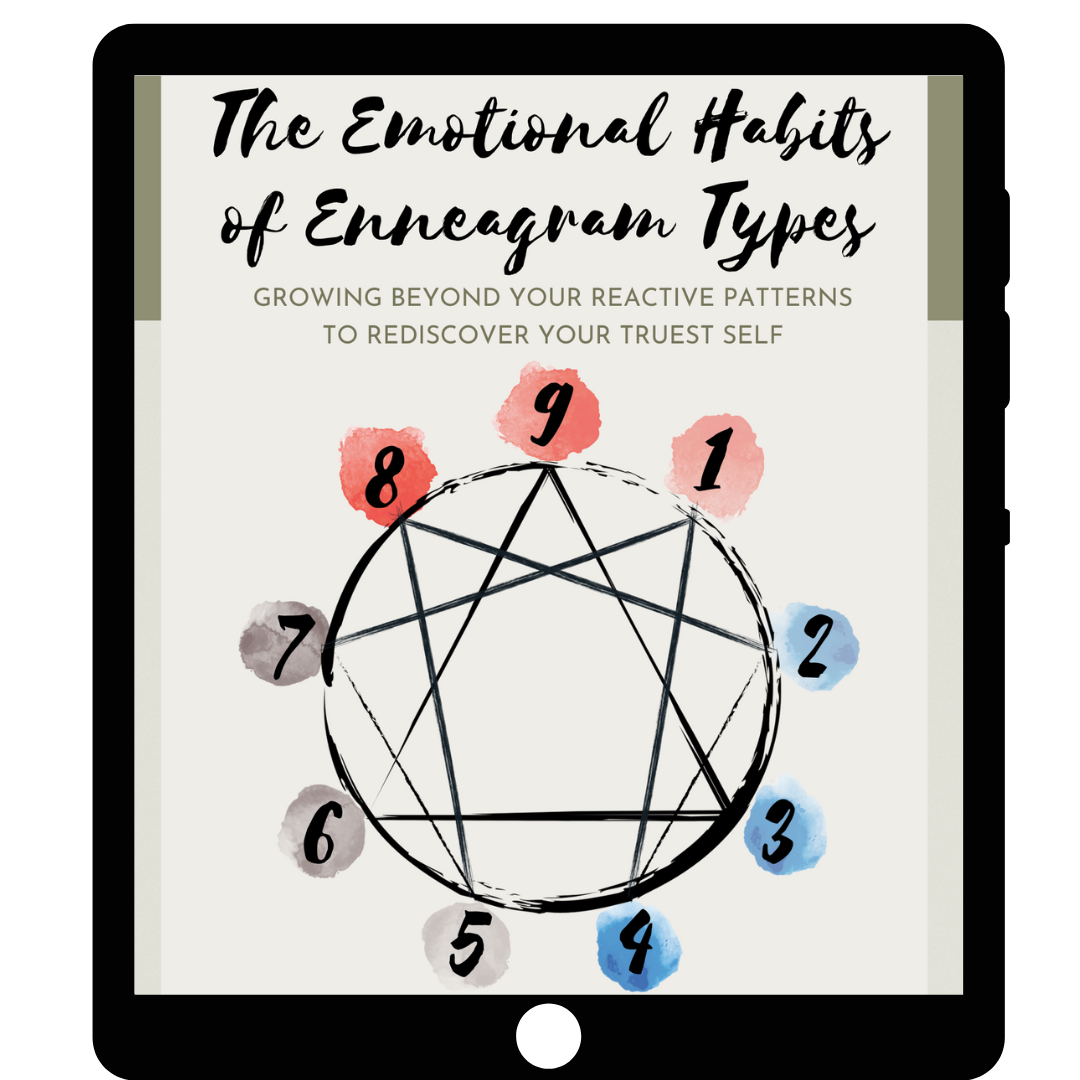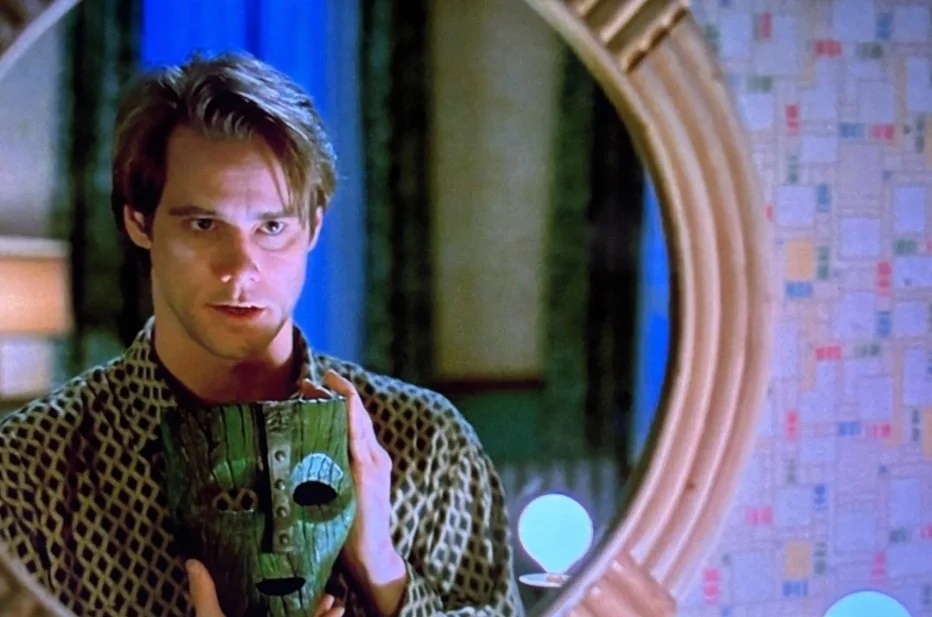Transformation from the Inside Out
As an Enneagram therapist, I want to walk the talk. I’m committed to working on my own Enneagram type’s ego structures so that even the way I help people aren’t cluttered by my own Type Four biases and reactivity.
(If you don't know what the Enneagram is, start here!)
I’ve been trained by my Enneagram teachers - Beatrice Chestnut & Uranio Paes — founders of Chestnut Paes Enneagram Academy — and have gone through their Personal Mastery & Professional Certification Tracks.
Here are some other blogs about inner work retreats:
Most of the prior retreats were for people of all nine Enneagram types.
This blog is about 5 reasons why Type-specific Retreats would help you take your inner work on a laser-focused level.
Reason #1: Less = More
The human brain can only take in so much information, let alone information about NINE DIFFERENT TYPES (or 27 subtypes!!).
Yes, I would still highly recommend the other 5-day retreats that cover the nine types, but there’s something about SIMPLICITY in doing the deeper dive on ONE TYPE (YOUR type!) that really hits home.
What are the central themes of your Enneagram type?
What are your type’s core childhood woundings?
What are the main psychological defense mechanisms of your type?
What is the emotional habit (aka PASSIONS) that drives your automatic patterns from behind the scenes?
What is the mental habit (aka FIXATIONS) that immediately directs your focus, to then summon your passion and its workings?
What does your type look like across all the Levels of Development? (e.g., what does a Type Four person fully stuck in ego look like vs. a Four who’s done a great deal of inner work?)
What are the three SUBTYPES of your type (Self-preservation, Social, and Sexual)?
What’s the alchemical outcome when you mix your passion with your dominant instinct?
How can you tap into all three Centers of Intelligence (Head, Heart, Body) to grow beyond your type?
Ultimately, it would still be useful for you to be familiar with the other eight Enneagram types, but for the purposes of your own growth, having a fuller understanding of your own Enneagram type inside and out is practically more immediately useful so that you’re STAYING IN YOUR OWN LANE and not getting distracted from doing necessary work!
(I’m especially looking at you Enneagram Twos and Nines who often look to everyone else except for yourselves and also to Enneagram Fives who often hoard information without taking concrete growth steps!)
Reason #2: Get Straight to the Point of TAKING ACTION
When you do a deeper exploration of your own Enneagram type, you can skip the accumulation of heady knowledge and get right to the points that really confront you with a mirror that reveals your own patterns IN REAL TIME.
Personal growth work is already hard enough as it is, but it’s even more difficult if we tend to INTELLECTUALIZE what really needs to be ACTED upon.
I love how the Enneagram is both COMPREHENSIVE and COMPACT at the same time. The Enneagram contains a wealth of information about our types in very accessible ways that are easy to remember and regurgitate.
The hardest part is catching our patterns in the act, not learning what our patterns are. There comes a point where we’ve learned enough heady knowledge about our types that it’s now time to TAKE CONCRETE STEPS.
80% ready is READY ENOUGH. Take what you already know, and RUN WITH IT! Time is of the essence, and we need to know that sometimes we DO know enough to do DIFFERENTLY starting TODAY.
Let us not drag our feet any longer on taking the important steps towards freedom!
Find out what those steps are by signing up for your Enneagram type-specific retreat.
(If your type’s retreat isn’t available yet, contact them and add yourself to the waitlist!)
Reason #3: See Yourself Reflected in Others
I joke with my Enneagram Four clients about what might happen if you have a room FULL of Fours.
Lament all they want about how they’re the MOST different, unique, exceptional, and fatally flawed person on the planet…but they can’t ALL be right!
I used to tell this to clients as a hypothetical…until I actually attended the Type 4 Retreat myself and saw for myself how WILD and WEIRD it was to see MY patterns showing up in OTHER PEOPLE in REAL TIME. (It’s not just me!)
As with the Boggart in Harry Potter who morphs into what we fear most and disappears when we see how riddikulus! it is, so does our own ego loosen its hold when we see those same patterns in someone else like in a mirror.
Not only are we able to better OBSERVE our own patterns in action (might even be triggered by this), but we are also able to cultivate better COMPASSION for ourselves in ways we can for others (especially important for people who are so self-critical, self-judgmental, or self-loathing) as we see just how much that mirroring person is SUFFERING because of their/our type.
You def can’t get that insight by reading a book! Better to experientially SEE you for yourself in real time!
Reason #4: Focus on Your Type’s Passion
All of the nine Enneagram types have a deadly sin (add two more to the Seven Deadly Sins and you have nine!):
Type 1 - Anger
Type 2 - Pride
Type 3 - Self-deceit
Type 4 - Envy
Type 5 - Avarice
Type 6 - Fear
Type 7 - Gluttony
Type 8 - Lust
Type 9 - Sloth
These PASSIONS (lit., “suffering”) are each type’s ego-driven emotional state that totally takes over someone’s life. They are a reaction to us losing contact with who we truly are (our “ESSENCE”), and are ways that our EGO tries to cope with that loss.
The word personality means MASK. Each of us HAS a mask, but we AREN’T our mask.
But what happens when we FUSE with our mask to the point of forgetting who we really are? We live our lives THINKING we know ourselves, when in fact we have no freakin clue.
EVERYTHING we do in life is driven by the passion, whether we know it or not. The issue is we usually are UNAWARE of how pervasive it is.
But what happens if we were to discover:
Everyone wears masks
We each wear a specific mask
Our specific mask looks like XYZ
Here is how the mask stays on
Here are ways to take it off
Once we have a more concrete sense of what each of our personalities look like (like knowing where the edge of the mask is), then we have a better shot at taking the mask off to reveal our true selves.
These type-specific retreats will help you know what YOUR mask looks like so that you can have that chance to know your true face.
When someone has done a lot of inner work to peel off that ego mask and reveal their essence selves, their emotional habit is the exact OPPOSITE of what it was in their ego state:
Type 1 - Anger > Serenity
Type 2 - Pride > Humility
Type 3 - Self-deceit > Veracity
Type 4 - Envy > Equanimity
Type 5 - Avarice > Non-attachment
Type 6 - Fear > Courage
Type 7 - Gluttony > Sobriety
Type 8 - Lust > Innocence
Type 9 - Sloth > Right Action
As an example, the more personal work I do as Enneagram Four (whose reputation is to constantly compare ourselves and always be in emotional chaos), where do I go?
Towards seeing myself as being EQUAL to + SIMILAR with others, and having emotional STEADINESS.
Pretty wild, huh??
Reason #5: Focus on Your Type’s Fixation
In the same way each Enneagram type has an emotional habit (PASSION), each type also has a specific mental habit (FIXATION).
Type 1 - Resentment
Type 2 - Flattery
Type 3 - Vanity
Type 4 - Melancholy
Type 5 - Stinginess
Type 6 - Cowardice
Type 7 - Planning
Type 8 - Vengeance
Type 9 - Indolence
Each type lives in a deluded/warped version of reality as we “fell from grace” and lost touch with true reality (the Holy Idea)
Type 1 - Resentment > Perfection
Type 2 - Flattery > Will
Type 3 - Vanity > Harmony
Type 4 - Melancholy > Origin
Type 5 - Stinginess > Omniscience
Type 6 - Cowardice > Strength
Type 7 - Planning > Wisdom
Type 8 - Vengeance > Truth
Type 9 - Indolence > Love
Yes, this is very jargony, but part of that is likely because of:
translation issues
this likely being beyond our current emotional & intellectual paygrade to fathom
The main thing for you to know now is that even BEFORE the passion drives the train forward, it’s our FIXATION that sets that train on the train track.
Where we look affects where we go, and what we focus on limits our reality. (Imagine the sky that you see is but a painted ceiling. What if there’s SO MUCH MORE out there?)
No matter how much work we do to peel off that personality/ego mask, if we don’t shift our attention AWAY from the mask, it’s only a matter of time until it goes back on.
We need something else to focus our attention on so the mask STAYS OFF. That is what the Holy Ideas are about.
It’s easy to get lost in all the abstract, metaphysical language, but that’s all the more reason to really hone in on what this means for YOUR specific type.
All of this knowledge is pointless unless you know what it concretely means for YOU where you are right now.
Summary
In this blog, I listed five reasons why I HIGHLY recommend that you try a Type-specific Inner Work Retreat:
Less = More
Get Straight to the Point of TAKING ACTION
See Yourself Reflected in Others
Focus on Your Type’s Passion
Focus on Your Type’s Fixation
Ready to go deeper in your personal work?
What are your Enneagram type's emotional habits?
Grab this free guide that shows you how to grow beyond the patterns that keep you stuck!
Don't know your Enneagram type?
Find yours here!
© Copyright 2023 Joanne B. Kim. All rights reserved.
JOANNE B. KIM, LMFT
Joanne is a Licensed Marriage & Family Therapist and Certified Brainspotting Practitioner in San Jose, CA. She helps people EXHAUSTED by anxiety, shame, and an allergic reaction to anger create VIBRANT relationships where they matter, too.
Many of her clients are:
(1) the highly responsible, conscientious, and empathic types
(2) Enneagram Type Ones, Twos, Fours, or Nines
(3) Highly Sensitive Persons (HSPs)
The most common words spoken by those who’ve sat with Joanne:
“I thought it was just me. I’m NOT crazy!”
“I can finally figure out what to do with all these feelings!”









































Struggling with emotional triggers or intimacy issues in your relationships because you were hurt in the past? Brainspotting is a powerful trauma therapy that helps you release past wounds stored in the body—so you can clearly see and effectively attend to each new person and moment clearly for what it is, instead of what your old trauma ghosts tell you they are.